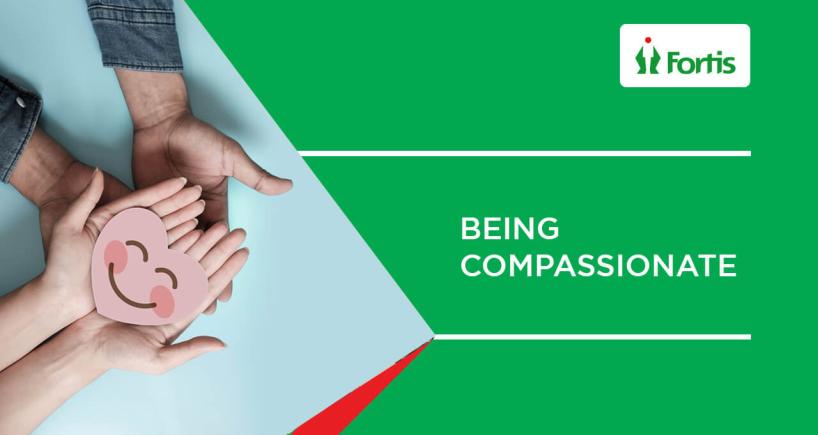
Being Compassionate
Compassion can be understood to be a way of feeling for someone who is suffering and is often accompanied by a desire to eliminate people’s pain. Compassion as a term is an amalgamation of empathy and altruism. When the feelings of empathy and sympathy are combined with the act of being altruistic; a person is said to be compassionate. This is a quality that helps get insight into a person’s suffering and allows us to adjust to their needs. It allows us to feel what others are feeling and in a way promotes prosocial behaviors that improve the collective well-being of individuals.
Having said so, how do we know if we are compassionate? Being a compassionate human being is about being able to understand people and their stories and taking action when we see someone suffer or in pain. It is about being able to share others' suffering and pain, being mindful of their thoughts and feelings, respecting their needs and listening to them without any judgment and with an open mind. Keeping this in mind, there are some ways in which we can put the feeling of compassion into action:
- Listening intently and without judgment
- Speaking and approaching others with kindness
- Offering to help
- Showing respect for people and their experiences
- Accepting people how they are
- Being patient
We often feel that compassion is when we feel for others but in this process we forget about being compassionate to ourselves. Compassion for yourself or self-compassion means treating and dealing with yourself with the same kindness and feeling that you have for others. It is acknowledging situations where you are not at your best, being more accepting of your mistakes and imperfections, being more mindful and understanding of yourself rather than being harsh or irrational with yourself.
One can engage in self-compassion by:
- Being aware of your boundaries and how much you can handle.
- Being in touch with your feelings and addressing difficult emotions.
- Taking some breaks and time off from everything.
- Not devaluing or disregarding your situations and thoughts.
- Being mindful of your coping patterns and developing positive coping strategies as required.
- Engaging in self-care: Sleeping well, maintaining a healthy diet, indulging in hobbies and interests, meditation, yoga, journaling, and other activities that help in destressing.
To some people compassion comes naturally and for some it is something that we learn over a period of time through experiences and relationships. Learning how to be compassionate can start with some basic steps such as bringing attention to a situation and understanding the person's perception of events.
Being able to see things from someone else's perspective can help in developing a sense of compassion for the person and their situation. Another way to build compassion could be letting go of the judgment and keeping an open mind. What may be trivial for us may be serious and complicated for someone else.
Developing compassion is important because it promotes meaningful connections, it promotes holding a problem-solving approach to things and it improves overall health and wellbeing. The central idea of compassion is refusing to turn a blind eye to challenging situations and events. It is the ability to understand struggles and be willing to help. It is an all important tool to create strong communities, connection (with self and others) and relationships which is the need of the hour. Being compassionate to ourselves and to others is what can help us thrive as individuals and promote a sense of oneness.
Categories
Clear allMeet the doctor

- Mental Health and Behavioural Sciences | Mental Health and Behavioural Sciences
-
5 Years
-
1500



















